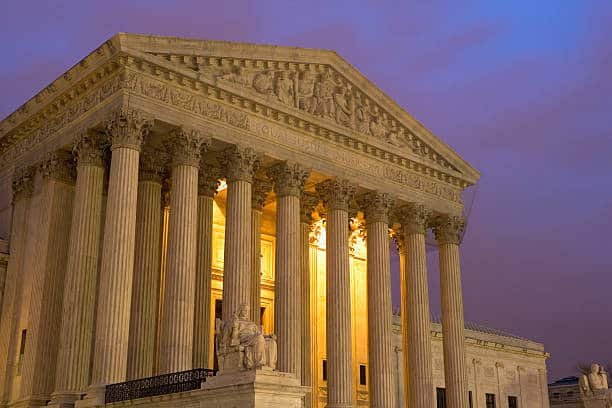Supreme Court Justices Benefit from Lucrative Book Deals, Highlighting Lack of Transparency and Ethics Concerns
Foreign
Supreme Court Justices Benefit from Lucrative Book Deals, Highlighting Lack of Transparency and Ethics Concerns

Justice Ketanji Brown Jackson confirmed her publishing agreement earlier this year for her memoir titled “Lovely One.” However, like her colleagues, she is expected to disclose the financial details in her annual financial disclosures. Justice Sotomayor has already earned approximately $3.7 million from a memoir and children’s books. A review of acknowledgments in other justices’ books reveals that some justices thanked their staff members for their assistance in compiling the books.
Justice Ketanji Brown Jackson confirmed her publishing agreement earlier this year for her memoir titled “Lovely One.” However, like her colleagues, she is expected to disclose the financial details in her annual financial disclosures. Justice Sotomayor has already earned approximately $3.7 million from a memoir and children’s books. A review of acknowledgments in other justices’ books reveals that some justices thanked their staff members for their assistance in compiling the books.
Ethical Concerns
While the book deals are not inherently problematic, the lack of transparency and clear guidelines surrounding them has raised ethical concerns. The Supreme Court’s absence of a binding ethics code sets it apart from other federal judges and government officials who are subject to specific rules regarding book deals. Additionally, experts have expressed concern about the justices’ use of court resources for their book ventures, which often involves paid work outside of their judicial responsibilities. This raises issues of potential misuse of staff and resources and may create difficulty for staff members to refuse such requests.
Foreign
Supreme Court Justices Benefit from Lucrative Book Deals, Highlighting Lack of Transparency and Ethics Concerns
Only three months into her first Supreme Court term, Justice Jackson secured a book deal worth about $3 million through the representation of a high-profile lawyer. This lucrative deal is the latest example of Supreme Court justices leveraging their fame for significant book contracts. Justice Neil M. Gorsuch received $650,000 for a collection of essays, while Justice Amy was offered a $2 million advance for her forthcoming book. These justices join Justice Thomos and Sonia Sotomayor in earning book deal payments that surpass their government salaries. However, the lack of transparency and potential ethical concerns surrounding these deals have come into question.
According to a report by the New York times recent investigations have shed light on the Supreme Court’s lack of transparency and the absence of a binding ethics code for the justices. The focus of these reports has centered on Justice Thomo‘s relationships with wealthy benefactors, Justice ALitos luxury fishing trip with a Republican megadonor, and the business dealings of Chief Justice Robets‘ wife. While book deals are not prohibited by law, they have become a significant source of income for justices, some of whom have used court staff members to aid in research and promotion.
Justice Ketanji Brown Jackson confirmed her publishing agreement earlier this year for her memoir titled “Lovely One.” However, like her colleagues, she is expected to disclose the financial details in her annual financial disclosures. Justice Sotomayor has already earned approximately $3.7 million from a memoir and children’s books. A review of acknowledgments in other justices’ books reveals that some justices thanked their staff members for their assistance in compiling the books.
Ethical Concerns
While the book deals are not inherently problematic, the lack of transparency and clear guidelines surrounding them has raised ethical concerns. The Supreme Court’s absence of a binding ethics code sets it apart from other federal judges and government officials who are subject to specific rules regarding book deals. Additionally, experts have expressed concern about the justices’ use of court resources for their book ventures, which often involves paid work outside of their judicial responsibilities. This raises issues of potential misuse of staff and resources and may create difficulty for staff members to refuse such requests.
Comparison to Other Branches of Government
Public officials in other branches of government, such as Congress and the executive branch, have well-established guidelines and oversight regarding the ethics of book deals. The Supreme Court has the choice to adopt similar regulations, but it has thus far declined to do so. This lack of clarity surrounding ethics within the Supreme Court suggests a need for the court to update its practices and align with the standards set by other branches of government.
Expert Opinions
Judicial ethics watchdogs have expressed a range of opinions on the issue. Some believe that the justices’ memoirs and personal stories serve as valuable contributions to American literature. However, others argue that the lack of transparency and clear guidelines makes the Supreme Court appear out of touch with other federal judges and government officials. The use of court resources for outside activities, including book ventures, is another concern raised by experts.
Conclusion
The Supreme Court’s justices have increasingly capitalized on lucrative book deals, further highlighting the lack of transparency and ethics concerns within the court. While not prohibited by law, these deals raise questions about potential misuse of court resources and the absence of clear ethical guidelines. The justices’ ability to earn significant income outside of their government salaries through book contracts warrants a review of the Supreme Court’s current ethical standards and practices.





